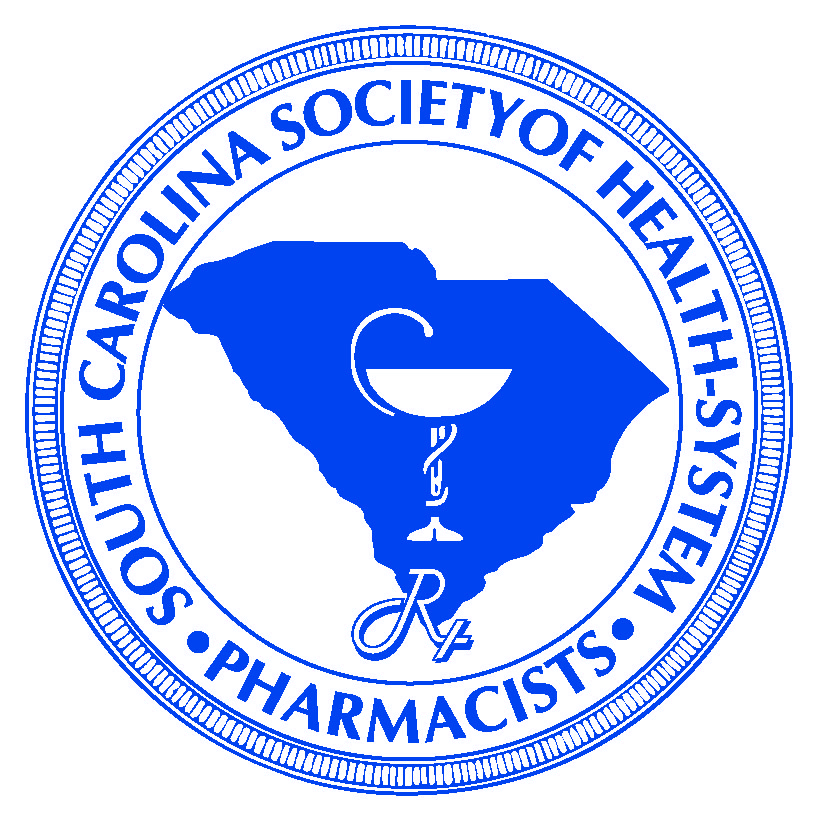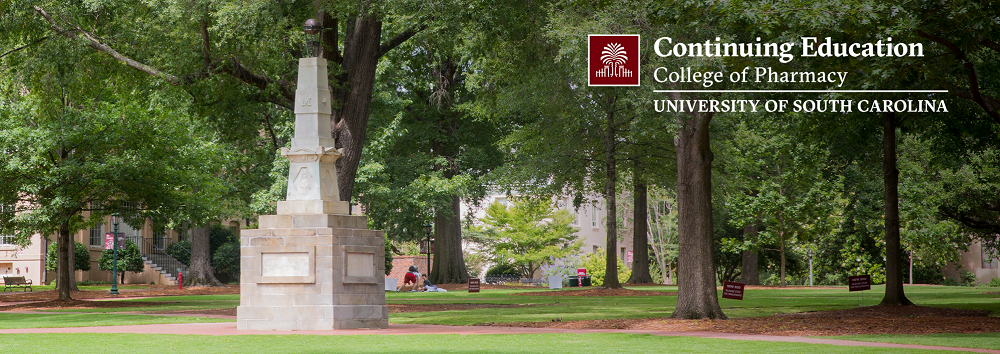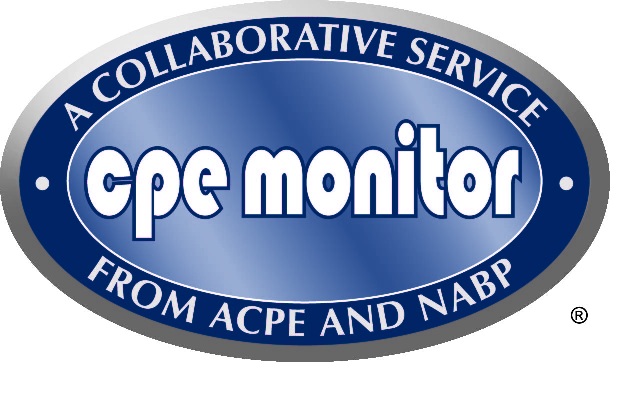
Date: Oct 7, 2020 04:00 PM - Oct 9, 2020 08:00 PM
CE Hours
CE Units
Activity Type
- Knowledge-Based and Application-Based
Target Audience(s)
- Pharmacists
Accreditation(s)

|
The University of South Carolina College of Pharmacy is accredited by the Accreditation Council for Pharmacy Education as a provider of continuing pharmacy education.
|
Co-Sponsor(s)
Requirements for CE Credit
- Describe pharmacist impact on commonly encountered clinical scenarios
- Provide an example of appropriate continuity of care for commonly encountered clinical scenarios
- Apply medication safety principles to commonly encountered clinical scenarios
- Describe the importance of applying evidence-based medicine to commonly encountered clinical scenarios
Speaker(s)/Author(s)
|
Kathy Chessman, PharmD, BCPS, BCNSP, FCCP
|
Activity Number
0062-9999-20-198-L01-PCE Hours
- Describe how COVID-19 causes disease and respiratory symptoms in patients
- Discuss basic preventative measures and why they are important to reduce the spread of COVID-19
- Examine evidence for Vitamin C mega-doses and ionic Zinc for use in COVID-19 prevention
- Identify current alternative therapies with evidence of antiviral activity that may be helpful to prevent infection of COVID-19
- Differentiate and categorize alternative therapies with evidence from those that have no evidence and/or are unsafe
Speaker(s)/Author(s)
|
Michaela Almgren, PharmD, MS
|
Activity Number
0062-9999-20-188-L01-PCE Hours
- Describe the growth of women in pharmacy over the past 50 years
- Compare and contrast the reasons for the growth of women in pharmacy
- Discuss the areas of growth for women in pharmacy
Speaker(s)/Author(s)
|
Suzy Soliman, PharmD, BCMAS
|
Activity Number
0062-9999-20-189-L04-PCE Hours
- Describe the clinical presentation and long-term complications associated with sickle cell disease
- Evaluate clinical trials leading to the recent FDA approval of medication therapies for the management of sickle cell disease
- Develop an evidence-based medication regimen for a patient with sickle cell disease when presented with a patient case
Speaker(s)/Author(s)
|
Courtney Alexander, PharmD, BCPS, BCOP
|
Activity Number
0062-9999-20-190-L01-PCE Hours
- Describe the risk of thromboembolic disease during active COVID-19 infection and the impact on morbidity and mortality
- Appraise current available evidence on the role of anticoagulation in preventing thromboembolism and improving outcomes in hospitalized and ambulatory COVID-19 patients
- Identify recent updates in guidelines and primary literature on the use of antithrombotic therapy in patients with thromboembolic disorders
Speaker(s)/Author(s)
|
Toby Trujillo, PharmD, FCCP, FAHA, BCPS-AQ Cardiology
|
Activity Number
0062-9999-20-191-L01-PCE Hours
- Describe the benefits and barriers to medications for OUD (MOUD)
- Determine custom treatment options for patients with OUD
- Select destigmatizing language to build trust and engage patients who may have OUD
- Educate patients on opioid overdose and prevention
Speaker(s)/Author(s)
|
|
Activity Number
0062-9999-20-192-L08-PCE Hours
- Describe why developing diversity, equity and inclusion in pharmacy leadership is vital
- Define diversity, equity and inclusion
- Discuss tools to help develop diversity, equity and inclusion in pharmacy leadership
Speaker(s)/Author(s)
|
Aisha DeBerry, JD
|
|
|
Edo-abasi McGee, PharmD, BCPS
|
|
|
Jimmi Hatton Kolpek, PharmD, FCCP, FCCM, FNAP
|
Activity Number
0062-9999-20-193-L04-PCE Hours
- Analyze the validity of sexually transmitted infection (STI) prevention/treatment claims among users on social media
- Discuss the probable impact of STI prevention/treatment advertisements on patient adherence
- Distinguish among FDA-approved and non-FDA approved STI prevention/treatment modalities reportedly used by social media participants
Speaker(s)/Author(s)
|
Kenric Ware, PharmD, MBA, AAHIVP
|
Activity Number
0062-9999-20-194-L01-PCE Hours
- Summarize the mechanisms of toxicity associated with beta blocker, calcium channel blocker, and cardioactive steroid ingestion
- Distinguish presenting signs and symptoms associated with toxic ingestions of cardioactive medications
- Construct a therapeutic plan for patients with cardioactive drug overdoses and justify the early utilization of antidotal therapies in the hemodynamically unstable overdose patient
- Propose monitoring recommendations for patients receiving antidotes
Speaker(s)/Author(s)
|
Charles “Trey” Wingerson III, PharmD
|

